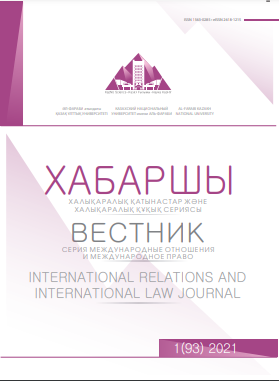BREXIT and empire: the role of colonial nostalgia in the argument for “Global Britain”
DOI:
https://doi.org/10.26577/IRILJ.2021.v93.i1.02Abstract
To what extent has the argument for ‘Global Britain’ benefited from elements of colonial nostalgia that may have permeated British collective memory until the present day? In other words, can a genealogy be established between Britannia (Thomas Arne composed Rule Britannia in 1740) and Brexit? Whilst the concept of Empire 2.0 has often been used to engage with the range of reasons put forward by Brexiteers to support the principle of a breakaway from the EU, commentators have often neglected the long-term ramifications of the feelings that may have played a role in the choice of 52% of the British population in the summer of 2016.
Yet, a longue durée approach reveals compelling continuities over several centuries. Historiographical developments since the 1980s have pointed towards the persisting influence of the imperial experience on the DNA of British culture and politics. This was reflected in a range of cultural manifestations reaching large constituencies of the population of the British Isles – what John MacKenzie has termed ‘Popular Imperialism’. This paper explores the hypothesis that this deeply rooted attachment to the Empire has been running consistently (although at varying degrees) at least since the eighteenth century, and has found a new lease of life among supporters of the Brexit process, who have celebrated often implicitly the strength of the imperial legacy as a suitable alternative to the EU project.
Key words: ‘Global Britain’, colonial nostalgia, Brexit, European Union.














